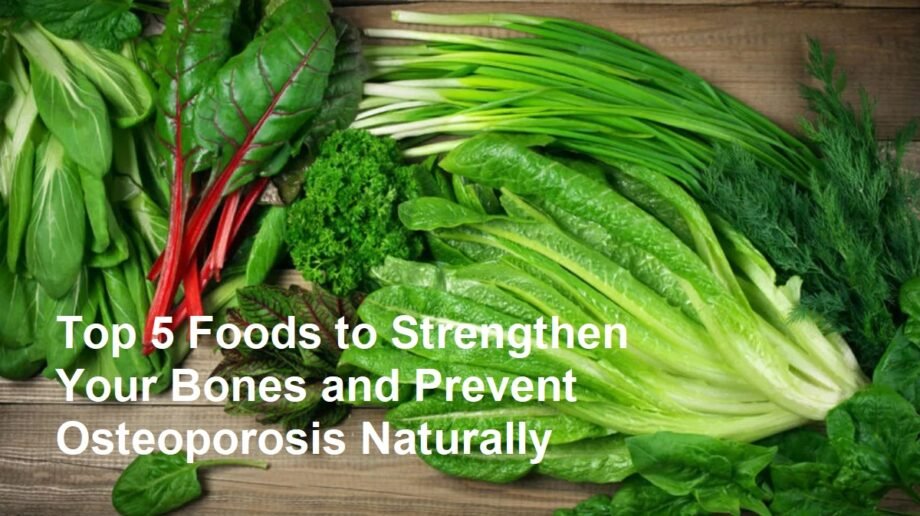Introduction
Maintaining strong and healthy bones is essential for overall well-being, especially as we age. Osteoporosis, a condition characterized by weakened bones that are more prone to fractures, affects millions worldwide. Fortunately, diet plays a crucial role in supporting bone health and preventing osteoporosis. In this article, we explore the top five recommended foods that nourish your bones and help maintain their density and strength. Following these dietary tips can lead to stronger bones and a lower risk of osteoporosis.
Why Bone Health Matters
Bone is a living tissue that constantly renews itself. However, as people age, bone density tends to decrease, making bones fragile and susceptible to breaks. Osteoporosis can lead to severe health complications, reduced mobility, and a lower quality of life. To combat this, it’s vital to adopt a lifestyle that supports bone formation and slows bone loss. Nutrition is a powerful tool in this effort.
1. Dairy Products: Rich in Calcium and Vitamin D
Dairy foods like milk, yogurt, and cheese are some of the best natural sources of calcium, an essential mineral for building and maintaining strong bones. Calcium supports the bone matrix and helps prevent bone loss. Moreover, many dairy products are fortified with vitamin D, which enhances calcium absorption. Including at least 2-3 servings of dairy daily can significantly improve bone density.
2. Leafy Green Vegetables: Packed with Bone-Beneficial Nutrients
Dark leafy greens such as kale, spinach, collard greens, and bok choy are loaded with calcium, magnesium, and vitamin K—all vital nutrients for bone health. Vitamin K, in particular, plays a crucial role in bone mineralization by regulating calcium in bones and preventing its loss. Adding these vegetables to your meals regularly is an effective way to boost bone strength.
3. Fatty Fish: A Natural Source of Vitamin D and Omega-3
Fish like salmon, mackerel, and sardines offer a potent combination of vitamin D and omega-3 fatty acids. Vitamin D helps with calcium absorption, while omega-3s reduce inflammation and may promote bone formation. Consuming fatty fish at least twice a week can contribute to healthier bones and overall cardiovascular well-being.
4. Nuts and Seeds: Calcium and Magnesium Powerhouses
Almonds, chia seeds, flaxseeds, and walnuts are excellent sources of calcium, magnesium, and vitamin E. Magnesium regulates calcium balance and supports bone structure, while vitamin E offers antioxidant benefits that protect bone cells from oxidative stress. Snacking on a handful of nuts and seeds daily is a simple yet effective way to enhance bone health.
5. Fortified Foods: Convenient Options for Bone Support
For individuals who may not get enough nutrients from natural food sources, fortified products such as plant-based milk alternatives (soy, almond, oat milk) and cereals fortified with calcium and vitamin D are excellent alternatives. These options help fill dietary gaps and ensure adequate nutrient intake essential for strong bones.
Supporting Lifestyle Tips for Bone Health
Alongside a nutrient-rich diet, other lifestyle habits can enhance bone strength:
- Engage in regular weight-bearing exercises such as walking, jogging, or resistance training.
- Avoid excessive alcohol consumption and smoking.
- Maintain a healthy body weight.
- Ensure adequate sun exposure for natural vitamin D synthesis.
Conclusion
Strong bones are foundational to a healthy, active life, and preventing osteoporosis starts at the dining table. Incorporating these five recommended foods—dairy products, leafy greens, fatty fish, nuts and seeds, and fortified foods—can provide the essential nutrients your bones need to stay strong. Adopt these dietary habits along with a healthy lifestyle to support your bone health for years to come.









